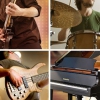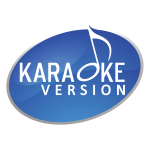
Get playing! What to know in 6 tips.
Age isn't a factor!
Cast away those preconceived notions! It’s not because your parents enrolled you in soccer/ballet/art/etc. rather than music class as a youngster that you can’t pick up a new instrument now.Of course it’s better to start as early as possible in order to become proficient for obvious reasons like ease, having a natural and impressionable mind at a young age, but don’t forget that with age comes wisdom, the ability to discern pertinent information, and a greater sense of concentration.
If, of course, the goal is to learn for the fun of it and not to become the new Paganini (our modern day version of Prince, known for his versatility and musical talent), all of the above rings even truer.
Age doesn't matter, but isn't there a minimum?
At age six, Mozart composed minuets, and at ten, famous pianist Liszt took on Beethoven and Bach. So, age really doesn't have to be a factor. There’s only room to grow! However, studies have shown that at any age younger than five, the control of both hands in order to master an instrument has not yet fully developed. Same goes for guitarists; at a young age, the ability to press down on the strings is more difficult for small, unskilled hands. And likewise for drumming and even blowing into wind instruments. It’s estimated that seven years old is the ideal age to begin an instrument. Anything before, should focus on creating musical awareness and preparing the road to future musical success.Body type is of little importance
Contrary to practicing sports at a competitive level, your body has little to do with playing an instrument (unless of course you are suffering from temporary ailments like the winter cold or back problems). The need to maintain physical capabilities or to pay attention to the effects of age on your muscles is less important. But to keep you in tip-top shape, exercises (like described here) have been developed to help you combat the physical effects of age when playing an instrument.Ready to learn? Alright, but which instrument?
There aren’t any specific rules regarding the matter, but here’s a list of things to keep in mind:- Sound. You know what you like and what instrument you're more attracted to. So think on it, what kind of music do you like?
- Instrument Family. Are you more of a rhythm or melody type of person? String, woodwind, brass or percussion? Which family do you belong to?
- Size. The laws of physics should be taken into account. A piano, for instance, doesn’t take up the same space as say a guitar or a bass.
- Soundproofing. A drum, for example, might not afford you the same possibility to play in your apartment as another instrument.
- Budget. Prices are not the same, but don’t just consider whether or not you choose a piano or a flute or a triangle. You should think about all of the accessories that go along with the instrument (consider amp, tuner, a case, etc.). But don’t let the price stop you if it seems too expensive, think about second-hand, or digital (for pianos and drums) or why not rent (many possibilities even exist for rent to own).
Self-taught or with a teacher
If you believe that you have already spent too much time on an instrument and you’ve reached a plateau, then proceed full speed ahead and get in touch with a teacher. Even if you can hold your own, a teacher might be able to point out some bad habits you’ve picked up along the way, or things you may have forgotten. Try a music school, a conservatory, look up a local community of musicians or go the classic route of hiring a music teacher. Compliment what you’ve learned by keeping up with blogs (like Karaoke Version, self-promotion never hurts) or magazines dedicated to learning instruments. In this day and age, online help can be found for practically any instrument (and many online music schools offer courses from the comfort of your home).Practice makes perfect
Force yourself to get to know your instrument. Set aside the dedicated time, make it routine if need be over at least a few weeks' time. Scheduling a set time will not only help you progress faster, but will help you create a habit that’s less likely to go away. A consistent, but low-intensity session will allow you to keep your motivation and passion while helping you improve.So, what are you waiting for? Get playing today!
Published on: 1 January 2016



